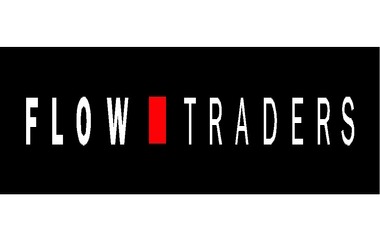
Notably, five big US speed traders are already acting as market makers in cryptocurrency futures. However, Flow Traders is the first firm to reveal its involvement in the trading of crypto notes listed on regulated stock exchange. The firm has drastically increased the trading of crypto ETNs (Exchange Traded Notes) issued by a Swedish company named XBT Provider. Availability of public traded notes will increase the appeal of cryptocurrencies as an asset class.
Furthermore, ETNs are simple, straightforward and cost-effective way of investing in cryptos such as Bitcoin and Ether. In an interview with Bloomberg, Dijkstra said “People underestimate crypto. It’s big, and it is to be regulated very soon. The market participants are much more professional than people think. Institutional investors are interested — we know they are because we get requests.”
Flow Traders will try to hedge every trade it executes, as quickly as possible. Dijkstra stated that the Flow Traders was able to structure new ways hedging after entering the crypto space and is proving beneficial to them in their budding currency trading business. However, he just stopped short of telling how the game plan works.
Dijkstra stated that Flow Traders used the futures contracts offered by CME Group Inc to hedge its trades of crypto ETNs. However, he refused to reveal whether the underlying cryptocurrencies are also used for hedging.
Flow Traders executed €244 billion euros ($284 billion) worth ETFs worldwide in the 1Q18. This includes 143 billion euros in Europe as well. Speed traders general make most of their money in the volatile markets. Therefore, cryptocurrency market is very attractive to them.
Laurent Kssis, managing director at XBT Provider, said
“With the growing interest from institutional clients willing to invest in digital assets, I can see why so many proprietary trading businesses are now focusing on this new asset class.”
XBT provider is a division of London-based CoinShares Ltd.
However, the interest shown by Flow Traders is totally contradicted by its regulator, the Dutch Authority for the Financial Market.
Nienke Torensma, a spokeswoman for the AFM stated
“We discourage activities in cryptos both by consumers and professional license holders. By virtue of its newness and the anonymity it potentially offers, it is very prone to abuse. Given its inability to serve the promised purpose as a currency, we don’t regard it to be an asset class.”
The AFM may not like cryptocurrencies, but can do little to stop firms from entering into the lucrative sector. A number of banks and financial institutions have recently entered cryptocurrency space in one way or the other. Goldman Sachs is setting up a cryptocurrency trading desk. Likewise, Barclays has started providing banking services to Coinbase, the San Francisco based crypto broker.